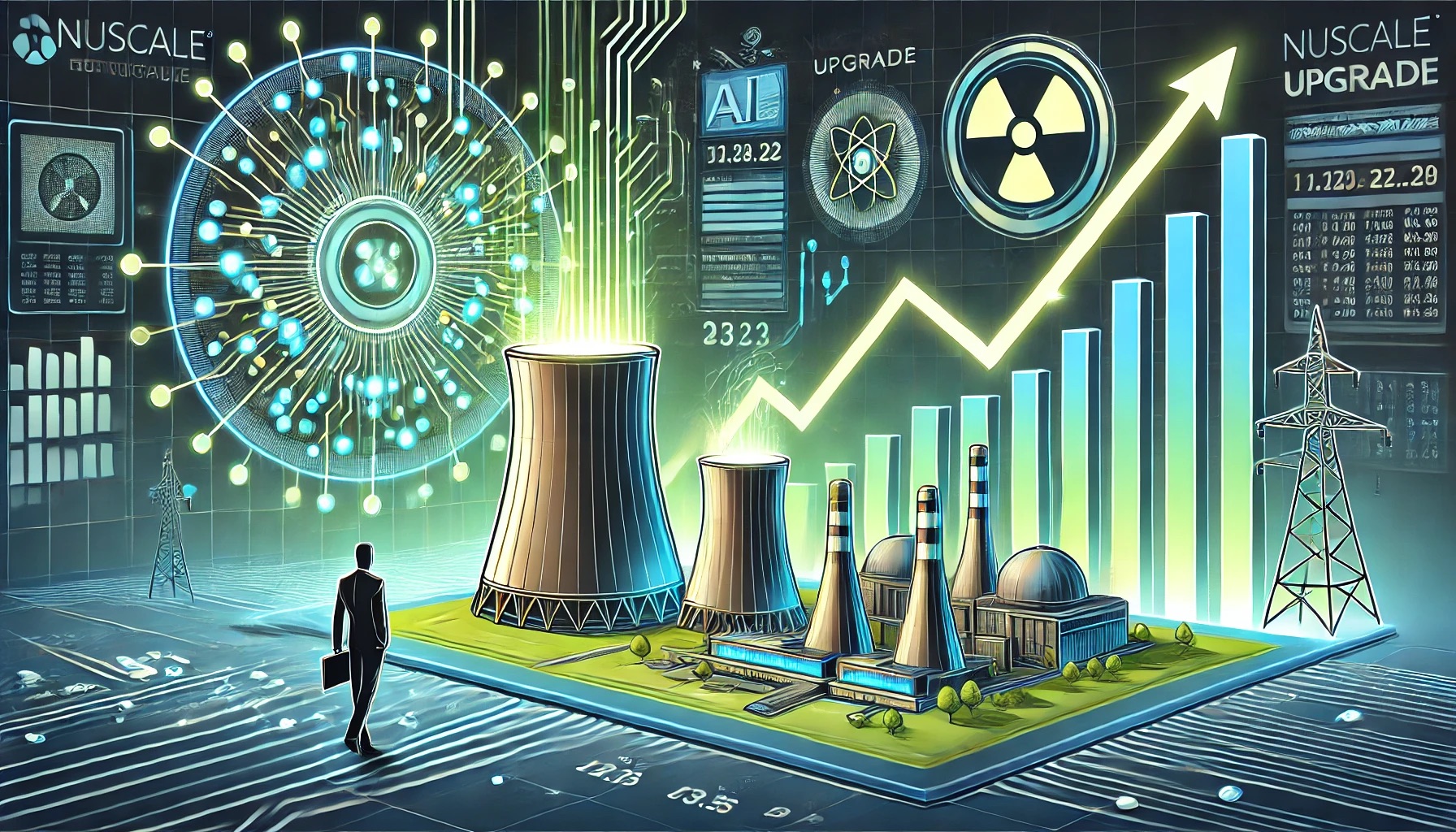Investment firm Craig-Hallum has upgraded NuScale's stock outlook, citing the company's strong position within the growing nuclear and small modular reactor (SMR) market. As AI and data centers demand more clean energy, NuScale is positioned to play a critical role in meeting this need.
Craig-Hallum Upgrades NuScale Stock, Citing Strong Position in AI-Driven Nuclear Energy Adoption
Nuclear energy is gaining significant attention as a solution to meet the rapidly growing demand from data centers across the U.S., driven by the transformative potential of artificial intelligence (AI). Recently, investment firm Craig-Hallum upgraded its stock price outlook for NuScale, a small modular reactor (SMR) technology leader, citing its regulatory advantage and strong customer pipeline, particularly within AI and data center applications, per Wccftech.
Major technology companies, referred to as the "Mag 7"—including Google, Microsoft, Oracle, and Amazon—have made aggressive moves in recent months to adopt nuclear energy to handle the energy-intensive workloads associated with AI. These companies are pursuing both conventional nuclear energy and SMRs, which are small, modular reactors still in the early stages of development. Rumors suggest that Apple and Meta may also announce similar nuclear energy deals soon.
HSBC Labels Nuclear Energy the ‘Next AI Trade’ as Data Centers Drive Demand for Zero-Carbon Power
According to HSBC, this growing focus on nuclear power has been dubbed the "next AI trade," as data centers are projected to account for 9% of the U.S.'s total electricity consumption by 2030. Nuclear energy is the only viable, zero-carbon option capable of meeting the substantial demand for clean, reliable energy.
Craig-Hallum has raised its price target for NuScale to $21 per share, citing a significant "nuclear renaissance" that could develop into a multi-decade megatrend. The investment bank emphasized the critical role of SMRs, particularly in providing zero-emission baseload power to support AI and data center operations. SMRs offer high energy density and zero-carbon power output, making them ideal for energy-hungry applications like data centers. While most SMRs rely on low-enriched uranium (HALEU), which is currently in limited supply due to sanctions on Russia, the technology is positioned to play a vital role in the future of energy.
Despite facing a setback when the Utah Associated Municipal Power Systems (UAMPS) canceled NuScale’s first-of-its-kind SMR project in the U.S. due to cost overruns, the company remains active with projects in South Korea and Romania. Craig-Hallum’s report highlights the growing momentum in nuclear energy, driven by recent high-profile announcements from Google and Amazon about their nuclear energy plans, including SMR projects. While NuScale was not directly involved in these deals, the firm is seen as well-positioned for the accelerating adoption of nuclear and SMR technologies, given its five-year regulatory head start and promising customer list, which includes AI and data center applications.



 The Beauty Beneath the Expressway: A Journey from Self to Service
The Beauty Beneath the Expressway: A Journey from Self to Service  Glastonbury is as popular than ever, but complaints about the lineup reveal its generational challenge
Glastonbury is as popular than ever, but complaints about the lineup reveal its generational challenge  What’s the difference between baking powder and baking soda? It’s subtle, but significant
What’s the difference between baking powder and baking soda? It’s subtle, but significant  Debate over H-1B visas shines spotlight on US tech worker shortages
Debate over H-1B visas shines spotlight on US tech worker shortages  AI is driving down the price of knowledge – universities have to rethink what they offer
AI is driving down the price of knowledge – universities have to rethink what they offer  Youth are charting new freshwater futures by learning from the water on the water
Youth are charting new freshwater futures by learning from the water on the water  6 simple questions to tell if a ‘finfluencer’ is more flash than cash
6 simple questions to tell if a ‘finfluencer’ is more flash than cash  Why financial hardship is more likely if you’re disabled or sick
Why financial hardship is more likely if you’re disabled or sick  Office design isn’t keeping up with post-COVID work styles - here’s what workers really want
Office design isn’t keeping up with post-COVID work styles - here’s what workers really want  Can your cat recognise you by scent? New study shows it’s likely
Can your cat recognise you by scent? New study shows it’s likely  Yes, government influences wages – but not just in the way you might think
Yes, government influences wages – but not just in the way you might think  The ghost of Robodebt – Federal Court rules billions of dollars in welfare debts must be recalculated
The ghost of Robodebt – Federal Court rules billions of dollars in welfare debts must be recalculated  The American mass exodus to Canada amid Trump 2.0 has yet to materialize
The American mass exodus to Canada amid Trump 2.0 has yet to materialize  Locked up then locked out: how NZ’s bank rules make life for ex-prisoners even harder
Locked up then locked out: how NZ’s bank rules make life for ex-prisoners even harder 































